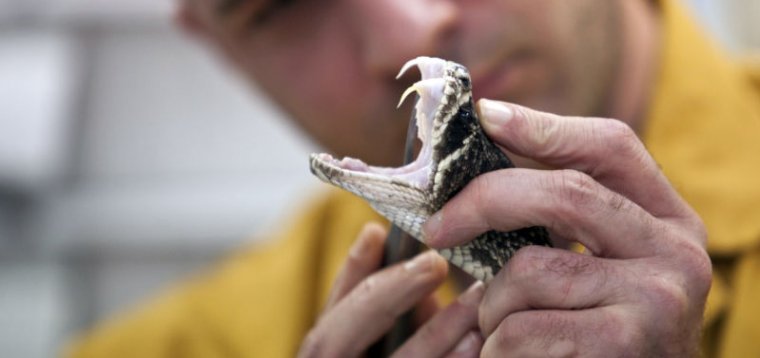
In an ongoing crackdown on dubious homeopathic products, the US Food and Drug Administration posted warning letters on Monday to four homeopathic companies the agency said committed violations that put consumers at risk, including lacking quality controls for products containing snake venom as well as skipping safety testing for products intended for children.
“We’re committed to continue taking appropriate actions when we believe patients are being put at risk by products that contain potentially harmful ingredients or have significant quality issues,” FDA Commissioner Scott Gottlieb said in a statement.
One of the chided companies, Red Mountain Incorporated, based in Florida, was found to lack all quality controls for its homeopathic product said to contain components of snake venom. “Without an adequate QU [Quality Unit], you lack the ability to ensure the safety, identity, strength, quality, and purity of your drug product,” the agency wrote in its letter.
The product in question is called Bioven. Red Mountain claims without documented evidence that it can treat “Rheumatoid Arthritis, AIDS, Hepatitis B & C, Bursitis, some Cancers and Lupus” by “reversing the body’s chemical and immunological imbalances.”
Red Mountain did not respond to Ars’ request for comment.
Bioven should, in the abstract, be harmless. The foundations of homeopathy are that certain substances (often toxic ones) can treat an illness if the substance causes similar symptoms to the illness (“like cures like”)—but only in absurdly large dilutions. Homeopaths erroneously believe that “ultradilutions” plus “vigorous shaking” increase the potency of a substance and lead to an effective treatment. Many homeopathic products are diluted far beyond the point at which any starting material still remains. In other words, they’re just water.
But if the products aren’t properly diluted, any toxic starter substances can be dangerous. That appeared to be the case for improperly diluted homeopathic teething products that contained the toxic substance belladonna, aka deadly nightshade. After years of investigations, the FDA linked the products to the deaths of 10 babies, as well as illnesses in more than 400 others in 2016. The tragic cases, in part, raised concern over the industry and spurred the agency to step up its regulatory oversight in 2017. The FDA is particularly sensitive to homeopathic products aimed at children in wake of the scandal.
In the latest batch of warning letters, the agency warned Tec Laboratories Incorporated over safety issues it found with the company’s homeopathic children’s product “LiceFreee Spray!” The spray is said to kill head lice, including “SUPER LICE” and lice eggs. The active ingredient in the spray is Natrum muriaticum, which is homeopathic-speak for sodium chloride, aka table salt.
Though table salt isn’t as concerning as other homeopathic ingredients, the FDA says that Tec Laboratories didn’t do standard testing to make sure its lightly salted spritz didn’t contain harmful microbial contaminants. The agency also said that the company failed to follow up on test results that indicated “high microorganism levels” in their facility’s water system.
A spokesperson for Tec Labs did not immediately respond to Ars’ request for comment.
Similarly, the FDA further rebuked King Bio for ongoing microbial contamination issues at its facility in North Carolina. Last year, the agency spurred the large homeopathic maker to recall more than 900 products over contamination concerns. Still, the FDA says that the company has failed to resolve the problems and continues to pose a risk to consumers.
The warning letter to King Bio notes:
You manufacture and distribute hundreds of drugs including those intended for infants, children, pregnant women, and immunocompromised individuals. Over multiple years, your firm obtained recurring test results for water used as a component of your drugs, as well as results for finished homeopathic drug products, outside of microbiological limits. This testing revealed extremely high levels of microbiological contamination, including results that were Too Numerous to Count (TNTC), and identified the presence of significant opportunistic pathogens in your drugs. Furthermore, your tests of retained samples and customer complaint bottles found objectionable microbiological contamination in already distributed lots.
At the time of the recalls, King Bio’s founder and president, naturopath Frank King, said that the company “chose to issue the recall out of an abundance of caution.”
Lastly, the FDA sent a warning letter to B. Jain Pharmaceuticals, which makes ear ring relief drops. The agency noted that its investigators observed “numerous flying insects” in the company’s facility and ingredients.
https://arstechnica.com/?p=1485051

